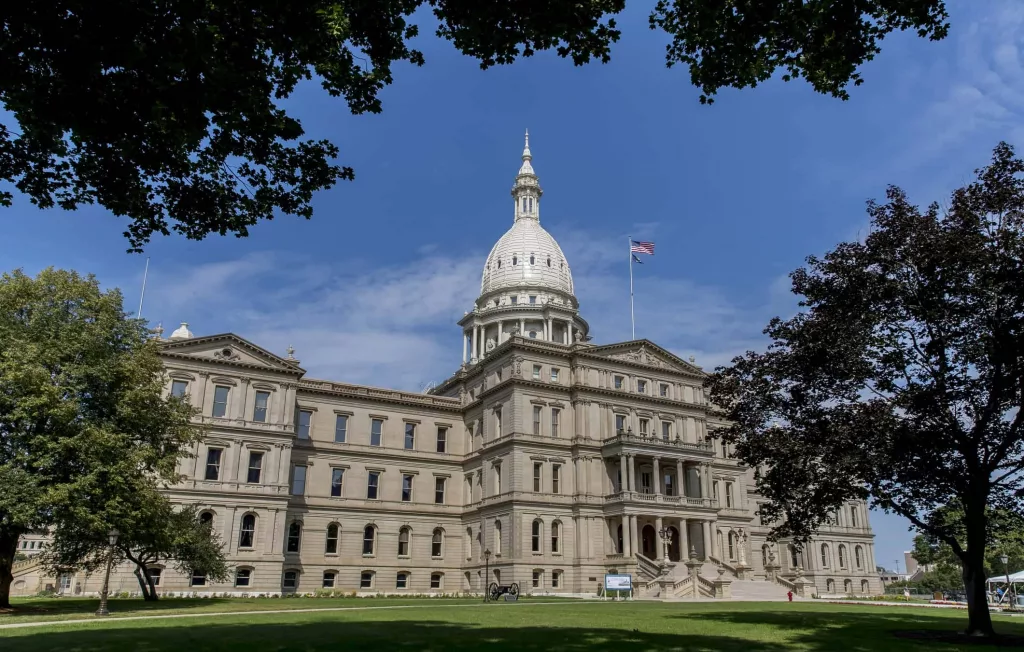A citizens commission charged with redrawing Michigan’s legislative boundaries approved three congressional maps on Monday to present to voters for the next 45 days before making a final selection.
Each map predicts a political tossup: Using the 2020 presidential election as a guide, each could favor Democrats 7-6. But if voters act more like they did in 2016, the edge would be 7-6 for Republicans.
The Michigan Independent Citizens Redistricting Commissioner, charged by voters in 2018 to propose a bipartisan set of maps, hopes to tentatively approve state House and congressional maps this week before a public comment period and final approval by year’s end.
Unlike the congressional maps, the 13-member citizen group on Monday approved just one set of boundaries for the state Senate, a proposal that would give Democrats a shot at retaking the chamber for the first time in nearly 40 years.
The congressional map process differs from the one for state house and senate because Michigan lost a seat in the federal chamber due to stagnant population, leaving it with 13.
That has forced major changes on the maps and could force incumbents — if they choose — to run against one another depending on which map is finally adopted.
The three maps approved Monday include one that connects Grand Rapids and Kalamazoo in a Democratic-leaning district that would be a first in West Michigan in decades, and two others that do not.
Because of population losses in northern Michigan, all three maps would bring the 1st District, now held by Rep. Jack Bergman, R-Watersmeet, farther south into the Lower Peninsula.
They all also radically change the district now held by Democrat Dan Kildee, D-Flint, whose current 5th District runs along the Lake Huron shore well north of Bay City. The new maps create a district that stops around Midland and includes more of the Republican-leaning Thumb region.
During the end of Monday’s meeting, raw emotion exploded within the commission, with commissioner Brittni Kellom, a Detroit Democrat, crying after her attempts to create a fourth congressional map were set aside.
Kellom had proposed an east-west split within Detroit that she felt better addressed what community members had sought.
But after about 40 minutes of tweaks to an existing map designed to address Kellom’s concerns, fellow Commissioner M.C. Rothhorn, D-Lansing, stopped the process, saying it wasn’t possible to make a map that balanced her concerns with others.
In particular he said he couldn’t approve a map that connected the Thumb with communities on the other side of Saginaw Bay.
“We’ve got to make choices, hard choices,” Rothhorn said.
Kellom then pointed out that the commission had spent over three hours working on a map affecting Ann Arbor. Her voice raised, with chairperson Rebecca Szetela at one point telling Kellom to “just stop.”
Kellom said she felt all alone as the only Detroit commissioner “when all of you openly admit that you have no idea what to do with Detroit.
“When it’s time to have a discussion, it’s not wanted.”
Szetela then agreed to look at Kellom’s suggestions overnight and try to find an agreeable solution. More work on the maps could come Tuesday.
The current 14 member Michigan delegation is split 7-7. But in 2012, in the first election after the last redistricting, drawn by GOP partisans, it was 9-5 in favor of Republicans, even though Republican candidates got 48 percent of votes and Democrats 47 percent.
From the non-partisan Newsroom of BridgeMI in Lansing






